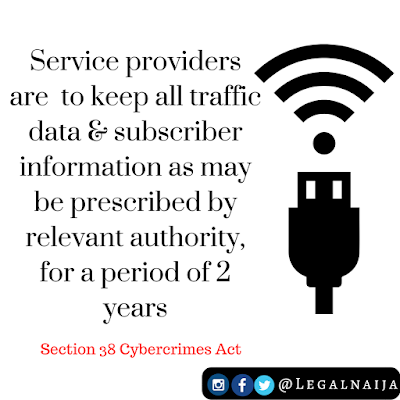
Juvenile #EndBadGovernance# Protesters, Data Accuracy and the Consequences of a Weak Data Protection Framework by Olumide Babalola
Juvenile #EndBadGovernance# Protesters, Data Accuracy and the Consequences of a Weak Data Protection Framework | By Olumide Babalola
Introduction
On the 1st day of November 2024, the Nigerian social media space was greeted with sympathy-drawing, emotion-laden still and motion images of some Nigeria children (irrespective of their ages, they are still children to their parents) arraigned before the Federal High Court after about 80 days in detention. When one of them slumped from alleged symptoms of malnourishment and hunger, his age and competence to face trial became an issue so much that a leading counsel in the prosecution team openly declared that the defendants are not minors and that most of them are already married with children.
The extrajudicial vituperations from the public and counter-assertions from the prosecution raise a data protection issue around the accuracy of personal data – the defendants’ accurate ages as well as the prosecution’s statutory obligation as a data controller. I will briefly discuss this in the successive paragraphs but it must be quickly reiterated that criminal prosecutions are not wholly exempted from the coverage of the Nigeria Data Protection Act, 2023. For clarity, the exemption does not obliterate law enforcement agencies’ obligation to comply with principles of data protection (see section 3(2)(a) NDPA which clearly “excludes” principles from the exemptions.
Data accuracy in the context of the prosecution’s position
Accuracy – a cardinal principle of data protection imposes a duty on data controllers to ensure that personal data they process (i.e collect, use, store, share etc) are accurate and kept up to date. The Nigeria Data Protection Act 2023 (NDPA) specifically requests that such data must not be misleading (see section 24(1)(e). In the case at hand, the police and prosecution are the data controllers who are mandated to ensure that the defendants’ personal data collected and used for their prosecution are accurate and not misleading.
The prosecution team announced to the entire world that the defendants are not minors but a look at the charge sheet says otherwise. For the avoidance of doubt, on the charge sheet with number FHC/ABJ/CR/503/2024, Umar Musa is 15; Muhammadu Mustapha 16; Ibrahim Rabiu 16; Muhammed Musa 14 etc. Since these are the recorded ages of some of the defendants, then the prosecution’s position is misleading since these are still minors under Nigerian law.
Verification of Children’s data
Going by the recorded ages on the charge sheet, some of these defendants are still minors while others are not thereby raising another data protection query – How did the Police ascertain their ages? The NDPA mandates controllers to be circumspect when processing children’s data. The law requires controllers to apply appropriate mechanism to verify the ages of children before processing their data. (See section 31(2).
In the decision in Emen Akpan v The State (1999) LPELR (CA), the Court of Appeal reiterated the methods of verifying a defendant’s age including: birth certificate or other direct evidence as to the date of birth, and in the absence of such evidence, a certificate signed by a medical officer in the service of the Government giving his opinion as to such age. In this case, the prosecution has curiously fixed the ages of the children without any identifiable mechanism for verifying their ages – this comes with a barrage of privacy and data protection consequences.
Consequence of inaccurate data
The prosecution’s careless and somewhat erroneous arrogation of inaccurate ages to the defendants has many legal implications touching on the latter’s rights, freedom, mode of trial, safeguards and other entitlements. For the sake of argument, assuming the ages of all defendants are rightly recorded as minors, then the choice of court ought to be different i.e they should all have been charged at the juvenile court. Perhaps, they would not also have been remanded in the regular prisons. Ultimately, they would not also be subjected to full trial of the offence alleged.
In conclusion, the failure of the police to verify the ages of children arraigned in court underscores a critical gap in Nigeria’s data protection framework. This lapse can be directly linked to the systemic issues plaguing the Nigeria Data Protection Commission, including inadequate funding, the prolonged omission to appoint governing council members, and the lack of harmonization among the various data registries in the country. These deficiencies not only hinder the effective enforcement of data protection laws but also compromise the rights and welfare of vulnerable populations, particularly children. To address these challenges, it is imperative for the government to prioritize the funding and operationalization of the data protection regulator, ensuring that it can independently and effectively oversee compliance and promote a culture of accountability in data management practices. Without these foundational steps, the integrity of the judicial process and the protection of citizens’ rights remain at significant risk.



